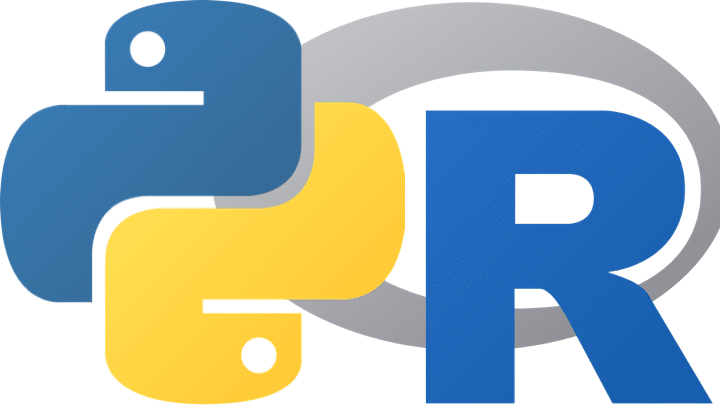Data science is gradually gaining popularity. It is deployed in diverse sectors. Thanks to it, companies do not require expensive software or mainframes anymore. The way data is collected, analyzed, and understood has evolved significantly, and due to this, the demand for data scientists has shot up considerably. Companies are looking for Python developers who can help them understand and obtain value from the data.
Data science has evolved over the years to adopt contemporary technologies such as Machine Learning, the Internet of Things, and Artificial Intelligence. The flow of data has increased in each sector. Even though AI, along with other advanced technologies, is rapidly increasing in usage, organizations also seek new ways to improve their decision-making, which can lead to significant profits. This article will focus on the recent advancements in data science and what we can expect in the future, highlighting its importance and the scope for further advancement.
Understanding the Evolution of Data Science
The field of data science has greatly transformed in recent times. Initially, it relied mostly on statistical analysis and data mining to draw conclusions based on structured data. However, as big data technologies have expanded and increased the amount of unstructured information from sources such as social networks and sensors, this has made Data Science, which is related to massive data sets, even more demanding.
Modern technology and programming both in machine learning and artificial intelligence, have empowered Data Scientists. They can now readily develop complex models for such tasks as predictive analytics, NLP and computer vision. This has led to a hybrid of jobs such as within the health field, finance industry, but also retail and manufacturing industries. They use it for things like personalized medicine, spotting fraud, suggesting products, and predicting when machines need fixing.
According to SEO Toronto Experts, Data Science tools and platforms are now easy to access for every business. This means even small firms can use data-driven intelligence in their decisions. Moreover, principles of ethics and privacy, as well as transparency in data usage, have become more critical with time when Data Science is going to change. In short, Data Science today has gone from being a discrete field to forming it is an integral element of contemporary business and society, defining innovation and how we interpret data.
How is the Digital Age Impacting Data Science?
 The digital age has led to an exponential increase in data volume and speed with which it flows. This “big data” necessitates new tools and techniques for efficient processing and analysis. Now, it seems that companies have to rely on costly tools to manage big data, do they? However, there is a good part: there are various open-source languages, such as Python and R, that help data science become more democratized, bringing a wider talent pool in. Moreover, fintech corporations are creating more tools to control the huge amounts of data information. At the same time, some companies are recruiting data science professionals who are capable of managing big data without using expensive tools. This stresses the fact that it should not be forgotten that these very tools were created by data scientists, creating a win-win state for all parties involved.
The digital age has led to an exponential increase in data volume and speed with which it flows. This “big data” necessitates new tools and techniques for efficient processing and analysis. Now, it seems that companies have to rely on costly tools to manage big data, do they? However, there is a good part: there are various open-source languages, such as Python and R, that help data science become more democratized, bringing a wider talent pool in. Moreover, fintech corporations are creating more tools to control the huge amounts of data information. At the same time, some companies are recruiting data science professionals who are capable of managing big data without using expensive tools. This stresses the fact that it should not be forgotten that these very tools were created by data scientists, creating a win-win state for all parties involved.
As a result of the digital age, there has been exponential growth in the amount and type of data as well as its rate or velocity. This “big data” requires new tools and methods for effective processing and analysis. Now, this sounds like companies require expensive programs to control big data? However, the bright side is that open-source languages like Python and R have made data science more accessible, attracting a wider talent pool. Further, fintech companies are coming up with more advanced tools for big data management while enterprises have enhanced roles of data management departments and are focussing on hiring data scientists who can manage large volumes of data without necessarily using costly solutions. The changing preference from costly tools to human expertise also highlights the flexibility of manpower, although it may be worth noting that these features are developed by data scientists.
Some specific examples of how data science has evolved:
- Machine Learning: Algorithms will be capable of learning from data and making predictions without requiring much coding input. This will enable personalized recommendations, fraud detection, and image recognition.
- Deep Learning: Powerful neural networks have achieved breakthroughs. The areas of impact are language processing and computer vision, pushing the boundaries of what’s possible.
- Cloud Computing: Scalable cloud platforms have made data storage and processing more accessible and cost saving. It also enables wider adoption of data science projects.
The evolution of data science is likely to continue.
The evolution of data science is expected to keep going, driven by improvements in these areas: The claim did not get discussed because it taught me the importance of dialogue about claims to make one clearly understand why he or she can use them.
1. Explainable AI: This involves promoting the humanization of AI, as people should be able to trust it more despite using technology and feel comfortable with its application.
2. Responsible Data Science: This refers to the issues of handling data and algorithms cautiously, so that they are utilized morally.
3. Edge Computing: This refers to performing data analytics close to where it is generated so we get results earlier and without lags.
4. Data Democratization: This entails making data available and intelligible to a greater number of users so that they can make more accurate decisions.
Predicting the Future of Data Science
It is a fact that Python reigns supreme in the world of data science. There are several reasons why it is more popular than other competitors such as R, Java and Julia. Let us discuss some factors of convergence that buttress the position of this tool as THE preferred option for data scientists around the world.
The format of Python is known for its clarity and brevity. Additionally, there are many libraries built specifically for data science tasks. These libraries, including pandas and NumPy, sci-kit-learn, as well as Matplotlib, basically make data tasks easy.

Python is not only for data science. It’s perfect for web development, scripting as well as automating. This kind of flexibility allows data scientists to easily integrate their work into other fields, thus enabling them to enjoy smooth and efficient flow in the process.
The Python community interacts with both developers and data scientists from across the world. This results in a mass of quality Internet tools, tutorials, forums and libraries which keep on improving. Namely, you can freely search for answers to your questions, collaborate on projects and keep abreast with current trends in the field.
In the case of producing databases, Python is one of the most efficient languages suited for performing statistical programs. In addition, the fact that it is readily accessible to web-related application users gives another reason for consumers to deal with data.
Indeed, there is a growing interest in the global data science community towards Python. Let’s take a look at some interesting facts that show just how much Python is dominating the world of data: Allen and his new end could be defined as an order of magnitude under which one is constantly faced with hunger.
Firstly, in 2023; over 51.8 billion Python packages were downloaded from the Python Package Index (PyPI). This demonstrates that Python is widely used by many people for different applications.
According to the Stack Overflow survey, in terms of overall use Python comes fourth with a mean ranking while considered as most wanted language – first position. This means that besides professionals, even amateurs are keen to learn Python since it is popular and beneficial.
As far as such problems are concerned, reference is made to more real-world data. The writing ensures that Python people come out toes in the group when it comes to pointing them on how best they can solve these kinds of issues associated with solving datalayers adequately thus making it their chosen fantasy way especially since research shows Python is used for more than 80% of entries in machine learning competitions on Kaggle, indicating its prevalence.
To data scientists, Python is the lingua franca. As shown by the data provided in a KDnuggets survey, an astounding 66% of those polled said that Python was their primary language for work. This clearly demonstrates the criticality of Python in Data Science.

Additionally, the number of job postings mentioning Python and data science on Indeed increased by a staggering 44% compared to all other languages, such as R. This shows that skills in programming using Python are sought after in many industries across India, Implying an increase in demand for those offer usable proficiency to meet this rapidly changing environment with adequate skillset especially from technicians side who can
Moreover, with the second wealthiest inventory of repositories on GitHub distributed amongst Python’s understudies and translators (the gathering that works together to articulate changes), the reality of its solid backing from a particular people is obvious alongside ensuing development opportunities.
Simply put, data science is now ruled by Python. It is very popular. It’s in high demand among students as well as professionals; there is much support from the community. For those who are just taking their first steps in the world of data science and for already experienced data scientists – Python is a language well worth learning.
 🚀 Elevate Your Data Science Journey with Beyond Machine! 🔥 Master Data Science in Just 3 Months!
🚀 Elevate Your Data Science Journey with Beyond Machine! 🔥 Master Data Science in Just 3 Months!
As data science continues its exponential rise across diverse sectors, the demand for skilled professionals like you is skyrocketing. Python developers, in particular, are in high demand for their ability to unlock the value of data.
Our Beyond Machine program, led by Dr. Stylianos Kampakis, a seasoned expert with over 10 years of experience, is designed to rapidly propel you into the world of data science mastery. Benefit from personalized mentoring valued at $1k/hour and let us streamline your job applications, potentially worth $50k+ per year.
✨ Don’t miss this opportunity to accelerate your AI career! Contact us now to embark on your journey to success. 📈💻
- What is the F-1 measure and why is it useful for imbalanced class problems?
- From Data Streams to Decentralized Worlds: Exploring the Role of Blockchain Subgraphs in Gaming Infrastructure
- How to predict customer churn using machine learning, data science and survival analysis
- Business models in data science and AI

